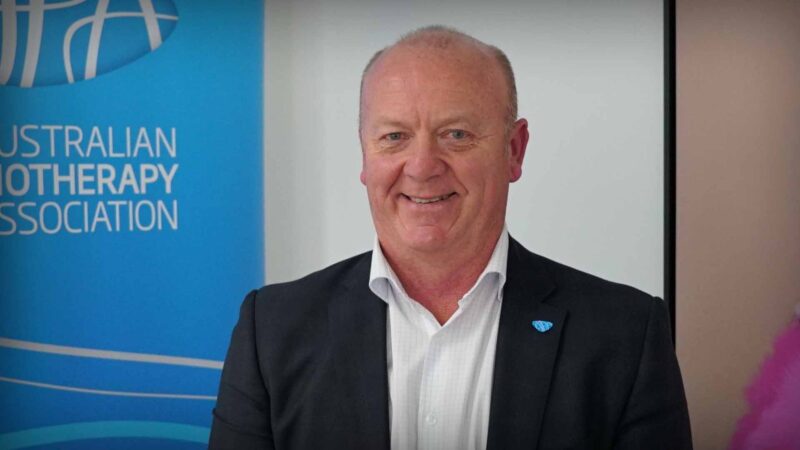Next week, at the Perth Convention and Exhibition Centre, The Royal Australian and New Zealand College of Psychiatrists (RANZCP) meet for the RANZCP 2023 Congress on the theme of “New Horizons: Connected Futures”
Delegates have been invited to reflect on how interconnectedness is a strength; and connections with each other in personal and professional lives, connections with the diverse cultures in communities, and connection to place with First Nations people.
Looking forward delegates have been asked to consider the next horizon in biological psychiatry and the delivery of evidence-based treatments. They have been asked to consider how the criminal justice system, mental healthcare system, disability sector and drug and alcohol services are interwoven and how to provide care that is integrated, and person centred.
Australian Health Journal spoke to current President-Elect Dr Elizabeth Moore and soon to be President, RANZCP about the Congress, as well as the recent Federal Budget announcements around mental health funding.
The RANZCP has welcomed a number of measures:
- $260.2 million over two years from 2023–24 to extend Commonwealth psychosocial supports for people with severe mental illness who are not in the National Disability Insurance Scheme (NDIS)
- $0.9 million over two years from 2022–23 to develop a 10 Year National Action Plan to support the health and wellbeing of Lesbian, Gay, Bisexual, Transgender, Intersex, Queer and Asexual (LGBTIQA+) people and establish a LGBTIQA+ Health Advisory Group.
- $40.0 million over 4 years from 2023–24 to establish the National Clinical Quality Registry Program for tracking the safety and performance of treatments and devices, thereby improving performance reporting for clinicians and hospitals.
- $4.9 billion over 5 years from 2022–23 (with $1.3 billion per year ongoing) to increase support for people receiving working age payments including the JobSeeker Payment. As noted in the College’s submission to the Senate Inquiry into poverty in Australia, we urged for an increase to the allowance rate for Australians accessing government-funded payments, including JobSeeker.
However, while there are some positive measures for mental health, RANZCP believe funding has been weighted to wellbeing initiatives and primary care. Australians experiencing the most serious mental health conditions, with severe, complex and chronic presentations have missed out on vital support in this year’s Federal Budget.
A particular group of concern is children. Around 3 in 4 children with a severe mental health disorder are missing out on critical support, according to Dr Moore.
Out of the 80,000 children in Australian with a severe mental health condition, only 22,000 are currently being seen by a psychiatrist, stating the case that more child and adolescent psychiatrists are needed to meet the needs of children.
You Might also like
-
Lens on patient care & allied health workforce across settings
The CEO of Allied Health Professions Australia (AHPA), Bronwyn Morris-Donovan spoke with Australian Health Journal about the following:
The structure and priorities for AHPA
The setting and disciplines in Allied Health
Allied Health representation in the Strengthening Medicare Task Force
Importance of a data strategy and interoperability in delivery of allied health services
Key allied health priorities hopefully addressed in Federal Budget.In the lead up to the Australian Federal Budget in May 2023, Australian Health Journal reached out to peak health industry bodies to hear about their priorities, either noted in pre-budget submissions lodged with Federal Government in January 2023 or in recent forums such as the Strengthening Medicare Taskforce.
-
Scott Willis, talks Physiotherapy
Health Executive Leadership Insights (HELI)
Scott Willis, the National President of the Australian Physiotherapy Association talks Physiotherapy -
Values in Workplace Culture
Professor Sabe Sabesan, is the Clinical Dean of the Townsville Regional Medical Training network incorporating the Townsville Hospital and Health Services and the Townsville Clinical School of the James Cook University and the director of the department of Medical oncology at the Townsville Cancer Centre, Townsville Hospital.
The Professor recently wrote, “Workforce wellness and engagement have become buzzwords in healthcare settings since there is an intimate relationship between staff wellbeing and performance of the healthcare system. Wellness initiatives such as wellness champions and wellness committees have been set up in response to emerging workforce mental health issues. These are largely reactive rather than being proactive in addressing or preventing the root cause of mental health issues.”



